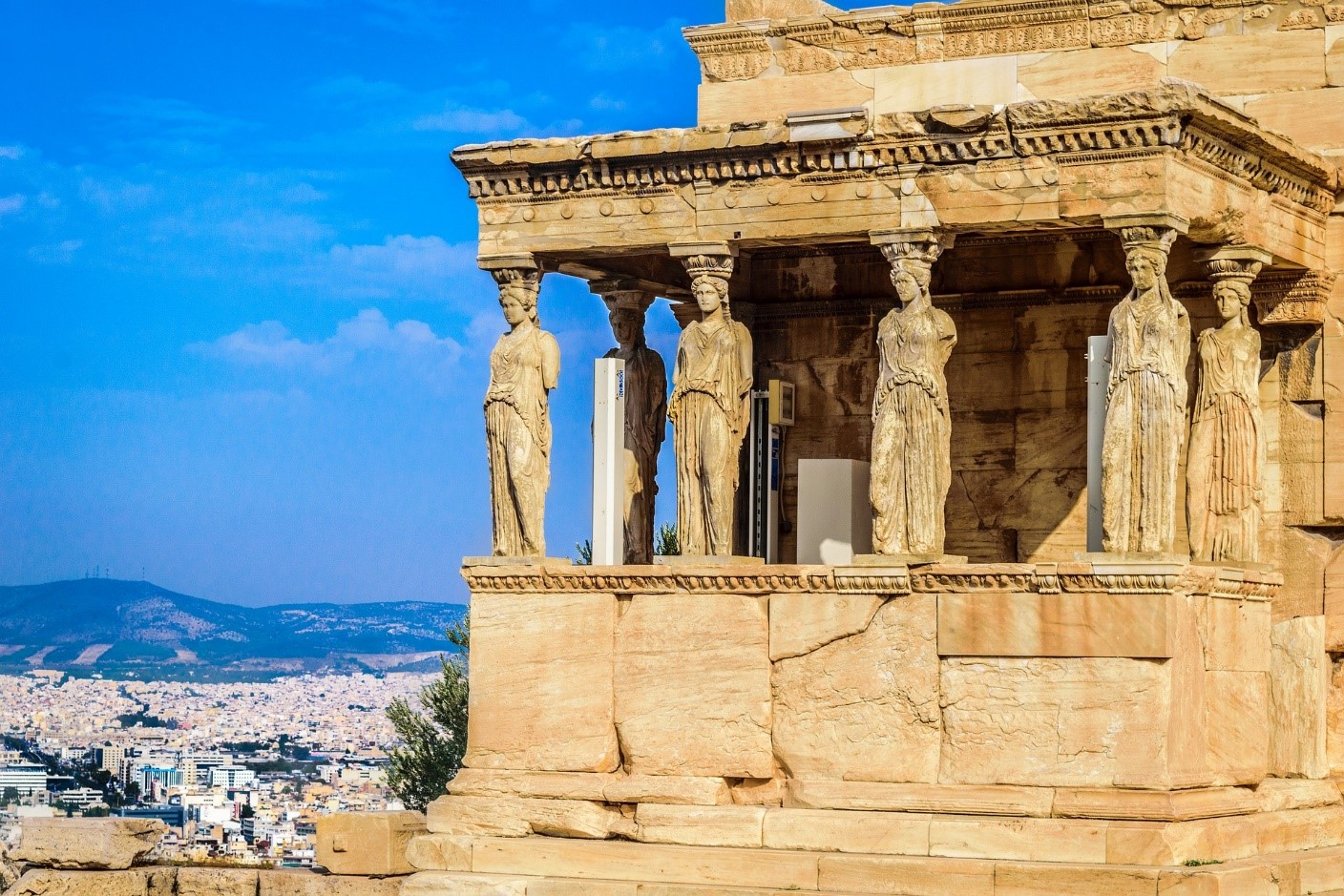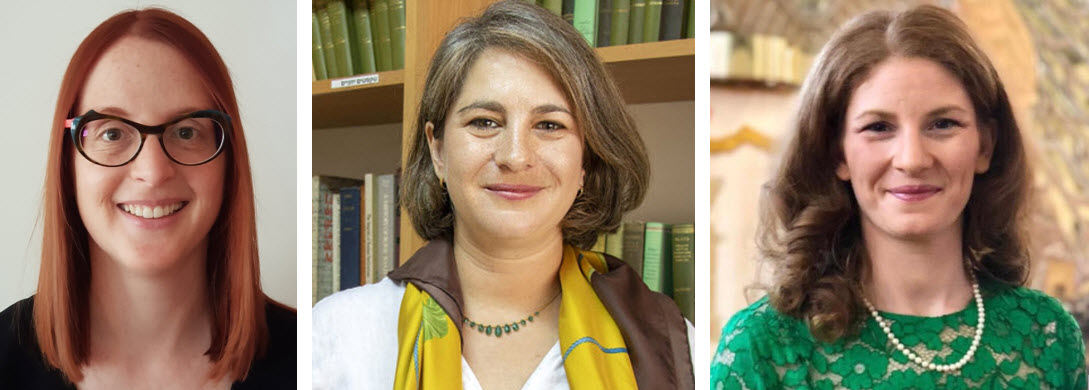The astonishing intellectual, literary, artistic, and scientific achievements of the Greeks and Romans were unsurpassed for two millennia, and after reaching renewed prominence in the Renaissance, formed the basis for the flowering of western culture. They are still an inexhaustible source of insight on the human condition and the world we inhabit.
Israel has long been a melting pot and meeting point for two great traditions, the Greco-Roman and the Judeo-Christian. As a result, Israel has been directly influenced by the language, culture, government, and religion of the ancient Greeks and Romans.

Bar-Ilan University’s Department of Classical Studies in the Faculty of Humanities is dedicated to the teaching and critical study of all aspects of ancient Greece and Rome. Study in the department imparts tools for linguistic, historical, archaeological, literary, and culturally-sensitive approaches to the ancient world. However, until now, these studies were conducted only in Hebrew, which limited the option for non-Hebrew speakers.
Opening up to the World
Over the past few months, Bar-Ilan University’s International School has introduced a variety of new undergraduate and graduate degrees in English together with the relevant departments, the latest of which is the Master of Arts in Classical Studies (Research Track).
Asked why the Department of Classical Studies decided to offer this program in English, Prof. Lisa Maurice, head of the department and the new MA, said it has been an idea bubbling away below the surface for several years thanks to the presence of many native English speakers in the department.
“We have several faculty members whose mother tongue is English; they’re either from the UK or the US, and the rest are fluent and comfortable in the language,” she said. “Although our field regards other languages, particularly German, French, and Italian, as important for research, English has become the internationally-accepted language of scholarship. Our department includes world experts in their fields and opening our program up to the wider English-speaking world enables us to offer non-Hebrew speaking students the chance to study with us as well.

Classical Studies Student Tour to Caesarea
“The move to online teaching as a result of the Coronavirus pandemic showed us how well such teaching works, particularly with our small, advanced, and ancient text-based courses, and this gave us the impetus to move forward with it,” said Prof. Maurice.
All it took was allowing the native English-speaking lecturers to teach some of their courses online and in English and to turn one of our wider general courses, which we were planning to teach in English anyway, into a hybrid program as a result of the reforms instituted by the Israeli Council of Higher Education. This enabled students from abroad to participate along with students physically in Israel and on campus.
One-of-a-Kind Department
“Being located in Israel puts us in a unique place in which the two major strands of what we think of as Western civilization, namely the Greco-Roman and Judeo-Christian, intersect,” Prof. Maurice said.
“The land of Israel is, after all, the place where Jesus lived within a Jewish society that was heavily influenced by Greek Hellenism and ruled by ancient Rome. We therefore offer a unique perspective of Jewish tradition and the birthplace of Christianity intertwined with classical scholarship at the highest level.
“Our MA, in particular, is unique in that we offer students with knowledge of the ancient classical languages the ability to obtain a top-quality Master’s degree, including the writing of a thesis supervised by one of our faculty members, from the comfort of one’s own home, and in conjunction with students from around the world,” she said.

Classical Studies Student Tour to Caesarea
The Classical Reception track, which specializes in, but is not restricted to, modern popular culture, is also the only one existing in Israel and, as far as we are aware, the only one in the world that is offered via virtual learning.
If you are interested in the reception of ancient Greece and Rome in film, TV, literature, children’s culture, and other such media, this is an exceptional opportunity to explore these issues.
Getting to Know the Faculty Members
 Prof. Lisa Maurice hails from London, UK, and graduated from Cambridge University with an Honors degree in Classics in 1989. She is an associate professor and head of the Department of Classical Studies, where she has taught a wide range of courses over the past 25 years.
Prof. Lisa Maurice hails from London, UK, and graduated from Cambridge University with an Honors degree in Classics in 1989. She is an associate professor and head of the Department of Classical Studies, where she has taught a wide range of courses over the past 25 years.
Her research focuses on the reception of the classical world in modern popular culture. She is the author of The Teacher in Ancient Rome and Screening Divinity as well as the editor of three volumes in the Brill Metaforms series on the reception of the ancient world in popular culture: The Reception of Ancient Greece and Rome in Children’s Literature: Heroes and Eagles, Rewriting the Ancient World: Greeks, Romans, Jews and Christians in Modern Popular Fiction, and The Reception of Ancient Virtues and Vices in Modern Popular Culture. She has also written many articles and lectured widely on Roman comedy and on classical reception.
Since 2016, Prof. Maurice has been a member of the European Research Council-funded project, , which traces the role of classics in children’s culture, and is primarily responsible for “Our Mythical Education”, which examines the reception of classical myth in formal education worldwide. She also works with Prof. Susan Deacy on projects involving the classics and autism, a collaboration that has resulted in the establishment of the organization, ACCLAIM (Autistic Connecting with CLAssically Inspired Myth), to further this endeavor. Together with Dr. Ayelet Peer, she has also set up projects working with autistic youth in Israel.
Prof. Daniela Dueck is an Israeli native who received her BA, MA, and PhD from the Hebrew University. Her research focuses on ancient geography with a special interest in Strabo and in the cultural history, customs, and ethnic identities of ancient Greece and Rome. She is the author of Strabo of Amasia – A Greek Man of Letters in Augustan Rome, Geography in Classical Antiquity, and Illiterate Geography in Classical Athens and Rome.
Prof. Gabriel Danzig was born and raised in the US, where he received his BA from the University of Chicago and his MA from Bryn Mawr College before moving to Israel and completing his doctorate at the Hebrew University. He is an expert in classical philosophy and has published widely on Plato, Aristotle, Xenophon, and Herodotus. His current research focuses on the ethical and political concepts of Xenophon.
Prof. Ranon Katzoff is a professor emeritus of the Department of Classical Studies and a world-renowned expert on Roman law, Jewish law, and papyrology. Born in the USA, he immigrated to Israel after receiving his doctorate from Columbia University. Prof. Katzoff has been teaching for 50 years at Bar-Ilan University where he also served as Dean of Humanities from 1998 to 2002 and head of the Department of Classical Studies for many years.

(L-R) Prof. Daniela Dueck, Prof. Gabriel Danzig and Prof. Ranon Katzoff
Israeli-born Dr. Ayelet Peer has been fascinated by the ancient Greeks and Romans since she was a young girl, and her favorite book was an adaptation of Greek mythology in Hebrew. She studied classics (majoring in Greek and Latin) at Tel Aviv University (TAU), graduating summa cum laude. She continued her postgraduate studies in the TAU School of History and received her doctorate in 2010.
Dr. Peer’s fields of interest include, among others, Greek and Roman literature and historiography, Julius Caesar, civil wars in antiquity, and classical reception (mainly in Japanese manga and anime). She is the author of Julius Caesar’s Bellum Civile and the Composition of a New Reality. Dr. Peer is a member, along with Prof. Lisa Maurice, of the Our Mythical Childhood project, working on the mythological children’s culture survey, and developing programs using classical myth for autistic children.
Dr. Ariadne Konstantinou is half Greek and half Israeli and grew up in both countries. She completed her PhD in Classics at the Hebrew University of Jerusalem and has held postdoctoral fellowships at the University of Toronto, Tel Aviv University, and Bar-Ilan University. Her research focuses on Greek language, literature, and culture, with a special interest in epic poetry and tragedy; Greek mythology and religions; women and gender; mobility and space; text and image; and classical reception.
Her book, Female Mobility and Gendered Space in Ancient Greek Myth was published by Bloomsbury academic press in 2018. She teaches both ancient and modern Greek in the Department of Classical Studies (the only university in Israel where modern Greek is offered), and a range of other courses. Dr. Konstantinou also presents a bi-weekly talk show on Israeli radio in which she discusses a musical piece connected with Greek myth.
Dr. Stephanie Binder was born and grew up in Paris. Her research focuses on early Christianity; ancient Judaism; Rabbinism; interaction between Jews, Christians, and pagans; Greek and Latin authors on Jews and Judaism; and Augustan Greek and Latin authors on Jews and Judaism.

(L-R) Dr. Ayelet Peer, Dr. Ariadne Konstantinou, and Dr. Stephanie Binder
“We are a small, friendly department and we pride ourselves on the excellence of our teaching and research,” said Prof. Maurice. “We welcome anyone and everyone who has an interest in the ancient world and its reception, and we look forward to supervising great students and teaching and learning from them as they pursue their interests and develop their skills at Bar-Ilan University.”
Please email Prof. Lisa Maurice or the International School for further information. You can also call us on +972- 3-738-4245.
Contact Us for More Info
Leave your details and we’ll get back to you soon

